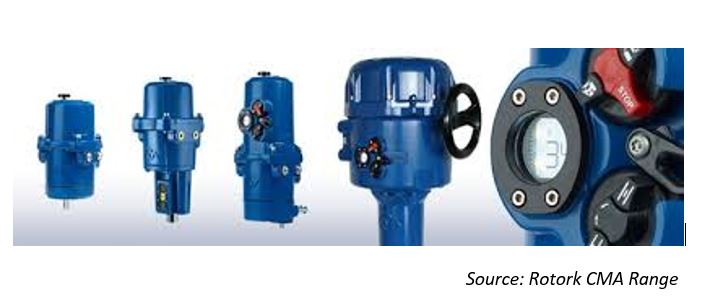

The global control valve actuators market in the process industries is predominantly pneumatically operated for both linear and rotary control valves. Pneumatic powered actuators have traditionally been the choice of technology, especially for light-duty modulating applications typical in process plants dealing with sensitive media, such as hydrocarbons and chemicals. However, ARC has witnessed a recent uptick in demand for light-duty compact electric actuators as a viable option for precision linear modulating application over the conventional pneumatic spring and diaphragm actuators for globe-style control valve operation across several process industries.
Earlier concerns associated with using electric actuated control valves in process industries included accuracy, speed of control, endurance towards heavy-duty cycle, increasing threat of an explosion, and fail-safe requirements. However, many of these concerns have been put to rest using advanced technologies, such as brushless dc motors, explosion-proof containment, and spring assisted/reserve power sources for fulfilling SIL-3 fail-safe requirements.

The initial upfront cost has also remained a challenge for end-users to opt for electric actuators over low-cost pneumatic counterparts. However, the aftereffect of COVID-19 shutdowns and the uptick of digital transformation initiatives in the process industries has further emphasized the need for automation, wireless control, remote operation, and predictive maintenance amongst plant operators. End-users are slowly realizing the benefits afforded by intelligent electric actuators, like lowering the cost of operating and maintenance over the life of a valve, often outweigh the associated up-front costs. As a cherry on top, investing in intelligent electric actuators also eliminates the need for supplementary smart digital positioners, which are equally expensive, along with the instrumentation required to operate pneumatic lines.
End-user in the chemical, petrochemical, refining and offshore upstream sectors have been exploring opportunities to enhance their plant efficiency and safety by opting for new advanced technologies over conventional products. ARC has come across several of these end-users choosing electric actuators over their pneumatic counterparts to operate their control valves in greenfield plants over the past few years.
As the demand from the heavy process industries eventually begins to stabilize and return to pre-pandemic rates, ARC expects to see a higher surge for electric actuators over pneumatic actuators in both linear and rotary control valve applications.

